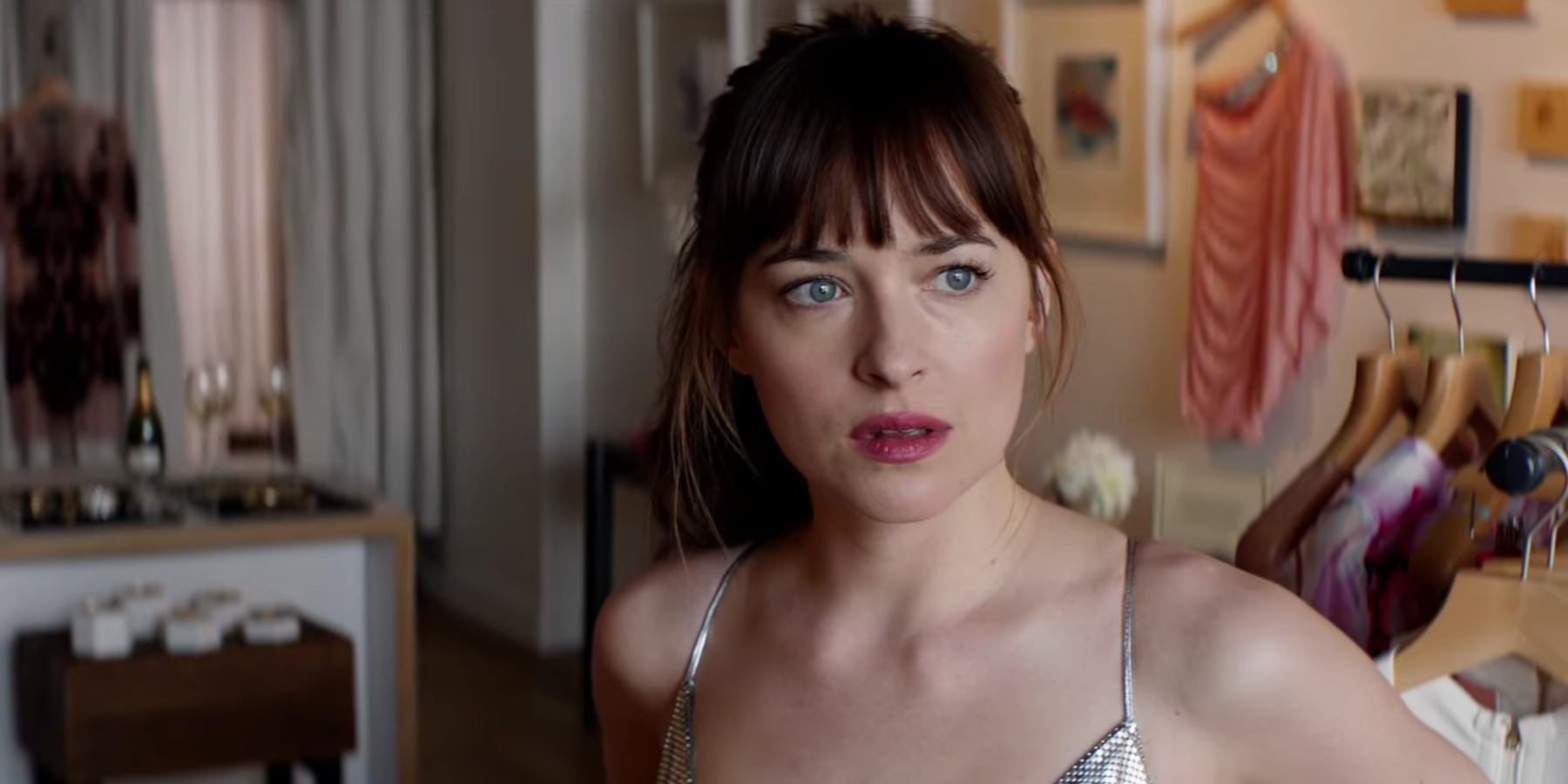Dakota Johnson opens up about her disagreements with author E. L. James during the notoriously troubled production of the Fifty Shades of Grey film series. Originally conceived by James as Twilight fan-fiction, the erotic trilogy chronicles the deepening relationship between college graduate Anastasia Steele and young business magnate Christian Grey who introduces her to the world of BDSM. Soon after its publication, sales of the Fifty Shades trilogy saw James become one of the highest-paid authors with earnings upwards of $95, including $5 million for Focus Features acquiring the film rights.
James wielded immense power over the making of the Fifty Shades films, hand-picking the producers who would go on to make major creative decisions, such as controversially casting Jamie Dornan and Dakota Johnson in the lead roles as Christian Grey and Anastasia Steele over several bigger names. The film adaptations experienced a notoriously chaotic production process, with original director Sam Taylor-Johnson departing after the first installment due to disagreements with James. In the end, the Fifty Shades films were utterly maligned by critics, though the series did end up grossing over $1.3 billion worldwide.
In a new interview with Vanity Fair, Dakota Johnson opened up about the making of the Fifty Shades of Grey film trilogy, which she described as "psychotic." The Anastasia Steele actress reveals how production become complicated due to James' involvement, whom Johnson would often clash with as the author demanded her books be adapted to her own exact specifications, oftentimes against the will of the screenwriter, director, and actors. Read what Johnson shared below:
I signed up to do a very different version of the film we ended up making. [E.L. James] had a lot of creative control, all day, every day, and she just demanded that certain things happen. There were parts of the books that just wouldn’t work in a movie, like the inner monologue, which was at times incredibly cheesy. It wouldn’t work to say out loud. It was always a battle. Always. When I auditioned for that movie, I read a monologue from Persona and I was like, "Oh, this is going to be really special." There were a lot of different disagreements. I haven’t been able to talk about this truthfully ever, because you want to promote a movie the right way, and I’m proud of what we made ultimately and everything turns out the way it’s supposed to, but it was tricky. We’d do the takes of the movie that [James] wanted to make, and then we would do the takes of the movie that we wanted to make. The night before, I would rewrite scenes with the old dialogue so I could add a line here and there. It was like mayhem all the time.
This is the first time Johnson is fully opening up about some of the disagreements that went on behind-the-scenes of the Fifty Shades films. As she mentions in her comments, Johnson previously had an obligation to promote the movies and spilling some of these secrets at that time would have been inappropriate. Now that a few years have passed since the release of the third and final installment, Fifty Shades Freed, in 2018, Johnson is free to share her side of the story, although she admits to holding back a bit to avoid needlessly damaging others' careers and reputations.
Despite her various disagreements with the Fifty Shades of Grey author, Johnson admits to being proud of the final product and harbors no ill will towards the author who helped cast her in her breakthrough role as Anastasia Steele. Much like Kristen Stewart, Johnson is beginning to shed her association with her career-defining role in a critically-panned film series with solid performances in an array of arthouse films, her most recent being The Lost Daughter and Cha Cha Real Smooth. Johnson can be seen next in the Jane Austen adaptation Persuasion releasing July 15 on Netflix.
Source: Vanity Fair


